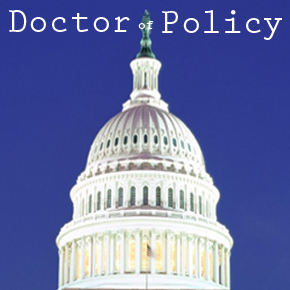Recently, Congress passed the so called “Doc-Fix” bill bringing about changes to the Medicare reimbursement structure. Understandably, there has been great confusion about what the implications of these changes are, particularly for future and current physicians. Here are some of the key changes taking place as a result of the bill’s passage:
1. CHIP funding extended: The Children’s Health Insurance Program, which provides insurance to children in disadvantaged settings, will continue to receive funding for two more years. This is critical in connecting children to health care resources.
2. Community Health Centers funded: Like CHIP, federally qualified community health centers (FQHCs) are important in providing health care to low income and otherwise disadvantaged communities because they offer a myriad of treatments on sliding scales. These centers will be funded for two more years. Furthermore, programs like CHIP and FQHCs have been critical for clinicians in rural and urban areas, giving them the ability to see a diverse patient population, and in ensuring accessibility to care for many Americans.
3. Changes in the payment structure: For many clinicians, a bulk of their patient population comes from Medicare eligible senior citizens. For many years, there have been ongoing debates about whether payments should be based on quantity or quality of physician services, and whether cuts in physician reimbursement are appropriate. This bill takes cuts to physician payments off the table, and in fact increases Medicare reimbursement of physician services by 0.5 percent each year between now and 2019.
After 2019, physicians will earn a government-awarded score based on the quality of their care, and this will determine future bonuses. The goal is to shift payment from quantity of services provided to quality of services provided. How quality will be assessed is still up for debate, so watch this space for more details as they emerge.
Whether you’re also a first-year medical student or you’re graduating in a matter of weeks, changes to the payment structure will play a critical role in how medicine is practiced. In the coming months and years, there will be opportunities to share your opinion on how quality can be determined for clinicians. Seize this opportunity to get involved in the policy conversation and see what you can do to make a difference.
Doctor of Policy is a column dedicated to exploring and challenging contemporary health policy issues, especially in the fields of behavioral health, health care access, and inclusion, all from the eyes of a public health girl in a basic sciences world.

